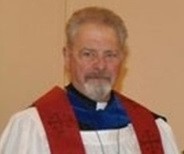
It is not altogether certain why some Spanish Bishops began adding a word to the Nicene Creed in the late 500s. They may have done it intentionally, or they may have just thought it was appropriate. In any case, they did, and that act became the “straw that broke the camel’s back” and led to the “Great Schism” that divided the Christian Church into Eastern and Western wings until today. The word was (and is, in Latin) “filioque”. It means “and the son”.
The Nicene Creed was drafted at the Council of Nicaea in 325, and modified at the Council of Constantinople, in 381. In the 325 version, the final sentence of the Creed says “And in the Holy Ghost”, and ends there. In 381, it was changed to read “And in the Holy Ghost, which proceeds from the Father, and with the Father and Son together is worshipped and glorified.” It was written in Greek, for Greek speakers. At some point, it was translated into Latin. Then, in the 500s, somebody in Spain (quite possibly a Germanic Visigoth speaker, just trying to learn Latin, and almost certainly not a Greek-speaker) modified it again, so then it said “And in the Holy Ghost, which proceeds from the Father and the Son, and with the Father and Son together is worshipped and glorified” “And the son”. The Romans hardly noticed for several hundred years, but the Greeks went berserk. Some still do, today. It is hard to have a rational conversation with some Orthodox (especially Russian), for the first question most ask is “Do you say the filioque, or not?”
Well, anyway, as stated, the Romans weren’t all that exercised about it, but two hundred years later, the Gallican Church (i.e., Bishops in Spain and France, who were by this time just barely under the control of Rome) liked it a lot. The Pope was about to name Charlemagne, a Frankish king, as Holy Roman Emperor, so he started using it, and in just a little while it spread throughout the West.
Until this time, there had been many Greek-speaking (and Orthodox-Rite) Churches in Italy and elsewhere in the West, and there had also been a good many Western, or Roman-Rite bodies in Greece and Asia Minor, but in 1054, the Pope and the Ecumenical Patriarch excommunicated each other, and the Church was split for more than a thousand years. It still is. All over one word.
